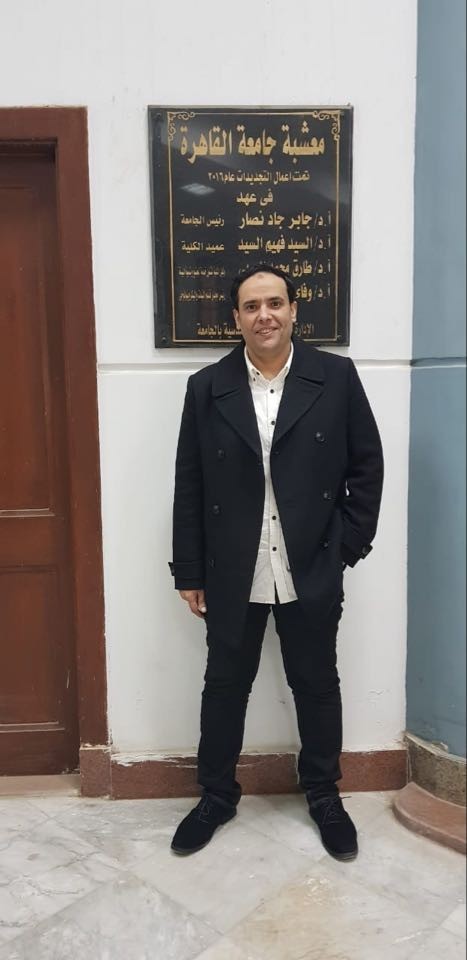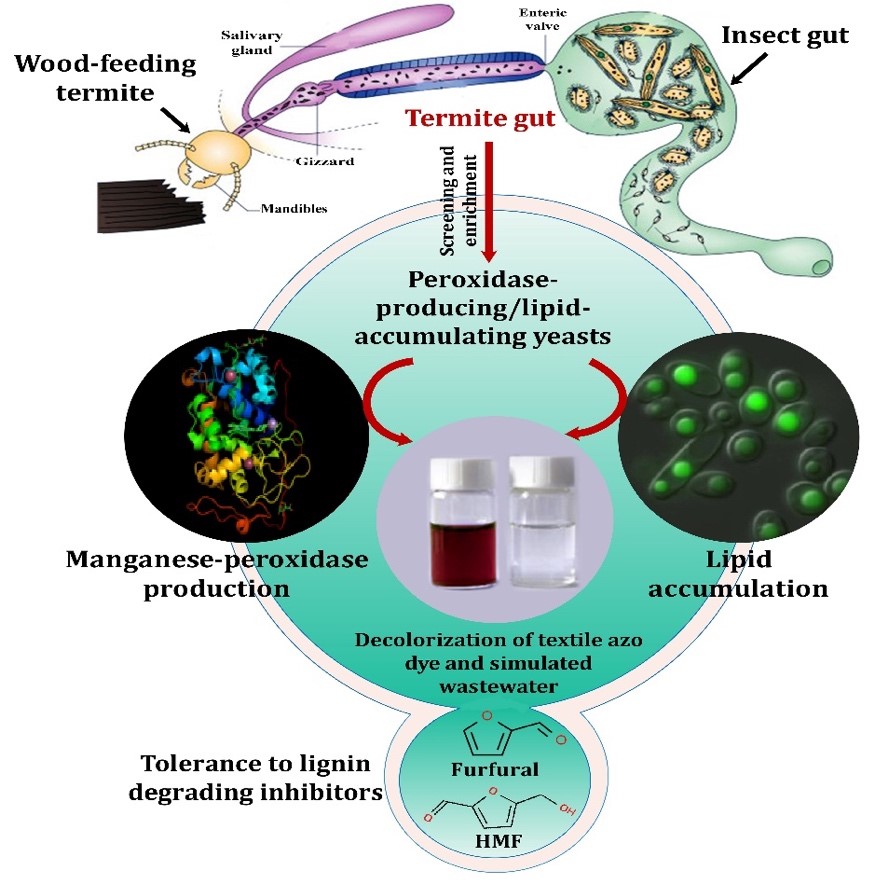Dr. Sameh Samir Ali reported a breakthrough technology in dealing with azo dye wastewater degradation and biodiesel production by the amazing oleaginous yeasts

Textile industry represents one prevalent activity worldwide, generating large amounts of highly contaminated and rich in azo dyes wastewater, with severe effects on natural ecosystems and public health. However, an effective and environmentally friendly treatment method has not yet been implemented, while concurrently the increasing demand of modern societies for adequate and sustainable energy supply still remains a global challenge. Under this scope, Dr. Sameh Samir Ali and his colleagues in biofuels institute at Jiangsu University in recent published their novel breakthrough technology in Biotechnology for Biofuels entitled as "Coupling azo dye degradation and biodiesel production by manganese-dependent peroxidase producing oleaginous yeasts isolated from wood-feeding termite gut symbionts" [Biotechnol. Biofuels (2021) 14:61; https://doi.org/10.1186/s13068-021-01906-0]. The novelty of this study was to isolate promising species of yeasts inhabiting wood-feeding termite guts, for combined azo dyes and textile wastewater bioremediation, along with biodiesel production at same time. In total, this study might be the first to explore the application of a manganese-dependent peroxidase and lipid accumulating yeasts for coupling dye degradation and biodiesel production (see attached graphical abstract).
Recently, a serial of the relevant papers from him and his colleagues have also been published in the same trend in SCI-indexed research papers in refereed Q1 journals. If you are interested in this research, additional selected representative papers in this direction are also available in the following links for your further information:
1. Journal of Hazardous Materials 403 (2021) 123575. https://doi.org/10.1016/j.jhazmat.2020.123575
2. Fuel 285 (2021) 119050.
https://doi.org/10.1016/j.fuel.2020.119050
3. Bioresource Technology 313 (2020) 123631. https://doi.org/10.1016/j.biortech.2020.123631
4. Frontier in Microbiology. 11(2020)1163.
doi: 10.3389/fmicb.2020.01163
5. Acta Microbiologica Sinica. 2018, 58(6): 1-12. DOI:10.13343/j.cnki.wsxb.20170610. (Chinese Journal).
6. PLoS ONE (2017), 12(7): e0181141. https://doi.org/10.1371/journal.pone.0181141

Graphical abstract illustrates showing the application of a MnP and lipid producing yeasts, isolated from wood-feeding termite symbionts for coupling dye degradation and biodiesel production.
Dr. Sameh Samir Ali is a professor of Biofuels Institute, Jiangsu University. His research interest is focused on Biomass recycling and biofuel production. Specifically, biological conversion of lignocellulosic biomass to biofuels, anaerobic digestion of biomass, wastewater bioremediation, also working on sustainability impact assessment for biomass, lignin, lignin-like dyes, and waste polymeric materials to bioenergy and value added materials. Dr Sameh Samir Ali has a very strong background knowledge in the area of Microbiology since he has more than 15 years of teaching experience. His research papers have been published in refereed SCI-indexed journals such as Journal of Hazardous Materials, Bioresource Technology, Science of the Total Environment, Fuel, Biotechnology for Biofuels, etc.